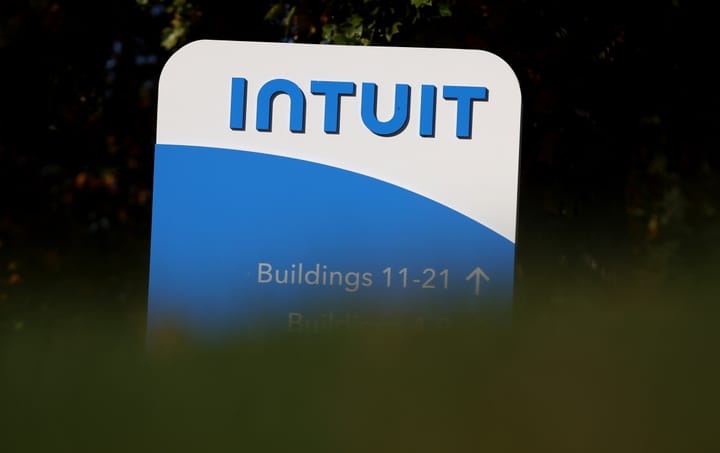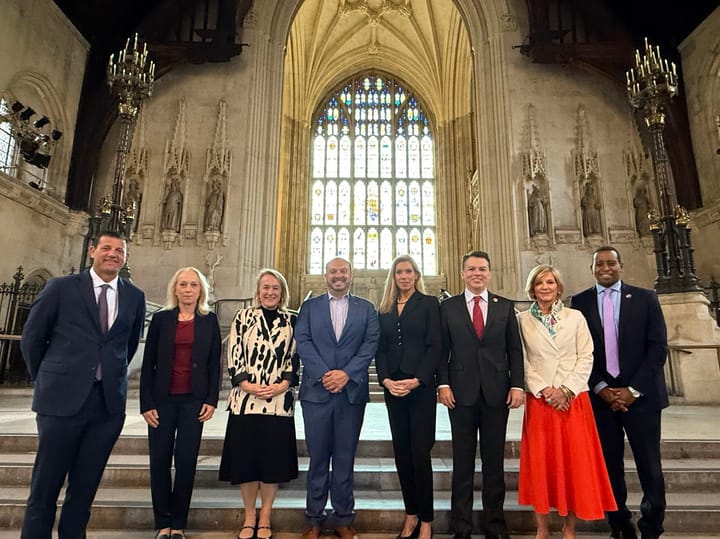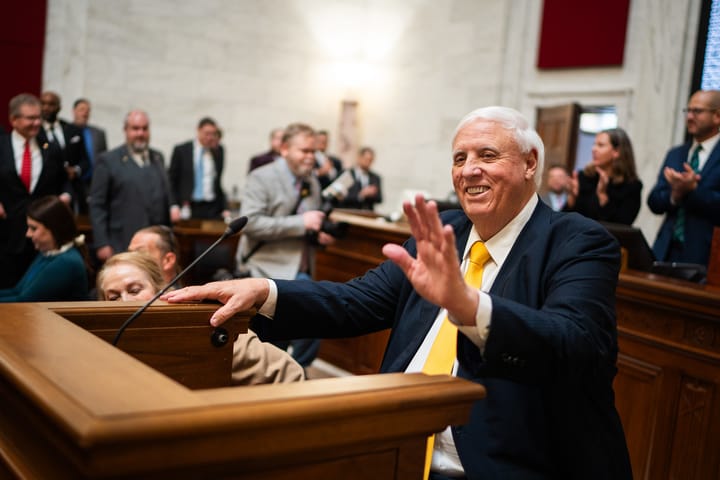Tax Day arrived recently, and millions of Americans forked over a fee to file their taxes using software products like TurboTax, made by the company Intuit.
In the U.S., households earning $73,000 and under qualify to file their taxes free of charge, but many taxpayers start using products like TurboTax and H&R Block that advertise themselves as free, only to be required to pay once the onerous process is nearly complete.
On March 29, the Federal Trade Commission announced a lawsuit against Intuit for its deceptive ads for its “free” tax filing service, alleging that two-thirds of filers weren’t eligible for the free offering in 2020. Days before the lawsuit was announced, Intuit voluntarily pulled its ads, but the company says it plans to fight the FTC on the matter.
The process is far less of a headache in the dozens of countries that use a public filing system run by the government, the anti-monopoly policy analyst Pat Garofalo noted earlier this month. In 2002, such a setup was floated for the IRS when the Bush administration proposed “an easy, no-cost option for taxpayers to file their tax return online.” The innovation was spiked by a lobbying blitz from Intuit and opposition from Republican members of Congress, as covered extensively by ProPublica journalists Justin Elliott and Paul Kiel. “The TurboTax Trap,” a reporting series going back to 2013, exposed how Intuit and H&R Block suppressed their truly free-of-charge filing options from appearing in search results, funneling users instead to paid versions.
This week, in a new letter to Intuit’s CEO, Sen. Elizabeth Warren pressed the company on its “scam” practices and its hires of former regulators, such as former FTC Commissioner Jon Liebowitz as counsel. She was joined in signing the letter by a pair of California Democrats, Reps. Katie Porter and Brad Sherman. Americans have paid an average of $240 to file their taxes, according to figures in Warren’s letter, with over a dozen hours spent on the ordeal.
Warren’s letter cites up-to-date reporting by Anna Massoglia, investigations and editorial manager at the nonprofit OpenSecrets, that four former members of Congress are registered to lobby for the company as it has recently spent over $3.3 million annually on federal lobbying.
At the end of 2019, the IRS agreed to reform its Free File program—though the status quo is less than ideal. Taxpayers visiting the official website are confronted with a page of eight products with dubious names like TaxSlayer.
Intuit has around 60% of the market share for consumer tax prep software, according to Warren’s letter to the company’s CEO Sasan K. Goodarzi. As laid out in the FTC’s administrative complaint, Intuit’s practices have caused low- and middle-income taxpayers to incur unnecessary fees. Some 14 million taxpayers stumbled down this path in 2019, according to an estimate from a Treasury inspector general, which Justin Elliott ballparked as generating an additional $1 billion in revenue for commercial tax prep software.
A bill introduced by Sen. Warren and Rep. Sherman in the previous Congress, the Tax Filing Simplification Act, would have directed the IRS to develop its own Free File tool. The bill languished in committee in each chamber. Then last year, Warren added language to the Democrats’ sweeping Build Back Better Act that would have started the IRS down the path of providing “filing and account services,” but Senate Democrats could not muster a 50th vote to overcome the Republican filibuster.
Intuit spends millions of dollars on lobbying and campaign contributions each year, as do other tax software providers like H&R Block. This spending amounts to a formidable influence campaign that likely plays a large part in why the IRS has not decided to create its own Free File tool and why Congress hasn’t taken action to force them to do so.
One big name working for Intuit is law firm Brownstein Hyatt Farber Schreck, the top spender on federal lobbying last year. In 2021, the firm reported $230,000 in lobbying for Intuit subsidiary CreditKarma, which says it shares customer data with Intuit. In February, Brownstein Hyatt threw a fundraiser for the Democratic Senatorial Campaign Committee at the Charlie Palmer steakhouse in D.C., Politico Influence noted, with over a dozen senators in attendance, including Chuck Schumer. (The location’s dinner menu offers six East Coast oysters for $21.) Also at the shindig were at least two of the firm’s Intuit lobbyists: Katelynn Bradley and Zach Pfister, the latter of whom bundled $390,000 in donations in January and February for the Democrats' House campaign arm. Overall in the first quarter of this year, Brownstein Hyatt’s PAC bundled over $341,000 for the DSCC, according to the party group’s FEC disclosure.
The second-highest spender on D.C. lobbying last year, law firm Akin, Gump, lobbies for Intuit, spending $190,000 last year. The firm’s PAC bundled $100,000 for the DSCC so far in 2022, according to FEC records. Democratic adviser and fundraiser Jake Perry’s firm registered to lobby for Intuit in November and has spent over $60,000 so far, and the tenth-highest lobbying firm by spending, Capitol Counsel, spent $200,000 last year lobbying on Intuit’s behalf. Other Intuit lobbyists last year included a full roster of influence peddlers: law firm Becker & Poliakoff, government relations firm Ferox Strategies, and strategic communications firm Franklin Square Group, as well as FTI Government Affairs, Gephardt Group Government Affairs, multidisciplinary law firm Greenberg Traurig, Ice Miller Strategies, Stanton Park Group, theGroup DC, the Madison Group, bipartisan firm OB-C Group, and the Smith-Free Group.
So far this election cycle, the Intuit Inc. 21st Century Leadership Fund PAC has contributed $15,000 to each of the Democratic and Republican Senate campaign arms, according to FEC records. A joint fundraising committee of House Minority Leader Kevin McCarthy received $2,500 in December, and two centrist Democratic groups received the same amount in August: the New Democrat Coalition Action Fund, and the Blue Dog Coalition PAC.
For years, government ethics experts have recommended that Congress and state legislatures ban the practice of politicians fundraising directly from lobbyists, as Intuit’s outside lobbyists did for Senate Democrats. It was one of the proposals that was not included in the Democrats’ major democracy reform package last year, H.R. 1. The ethics package was further whittled down by Democratic Sen. Joe Manchin before it died of Republican filibusters in the Senate. In the absence of laws barring lobbyist donations, party groups like the DSCC could move to adopt rules that they won’t accept lobbyist contributions, bundled donations from lobbyists, lobbying firm PAC donations, or even any corporate PAC money—types of funding used by members of both parties to advance in leadership ranks.
Progressive writers have used the term “deliverism” to denote a framework that implements good-government programs used by members of the public in noticeable ways, enhancing trust that government can address larger social issues. A truly free tax-filing tool from the IRS might fit the bill nicely.
Originally posted at The Brick House Cooperative



